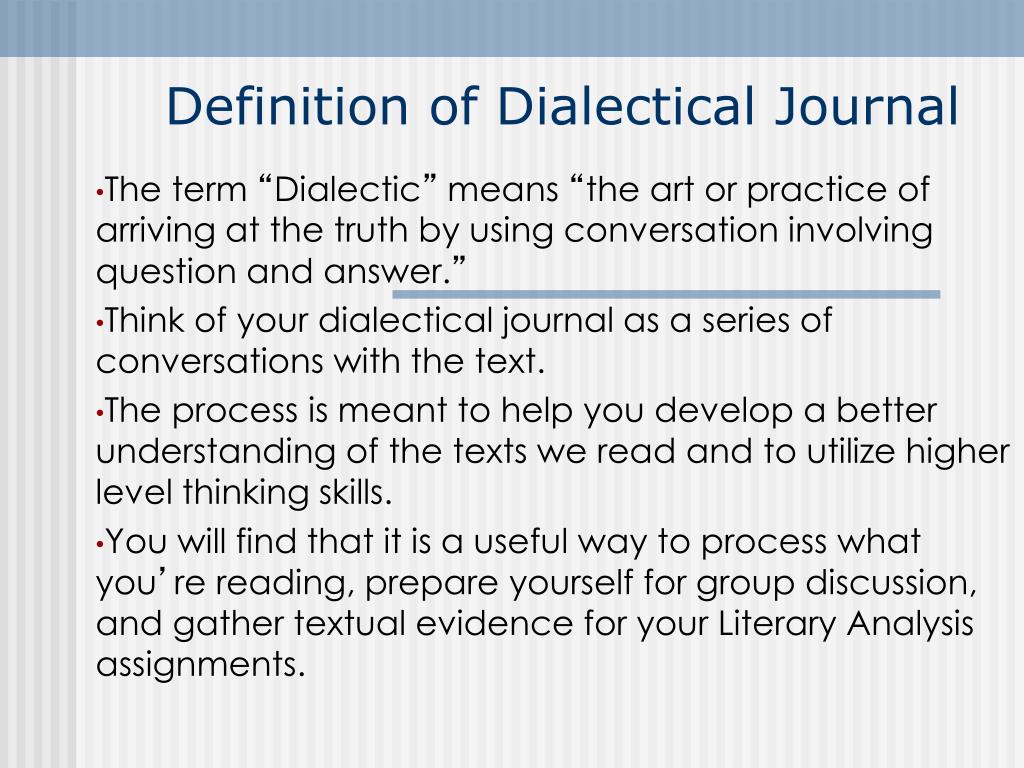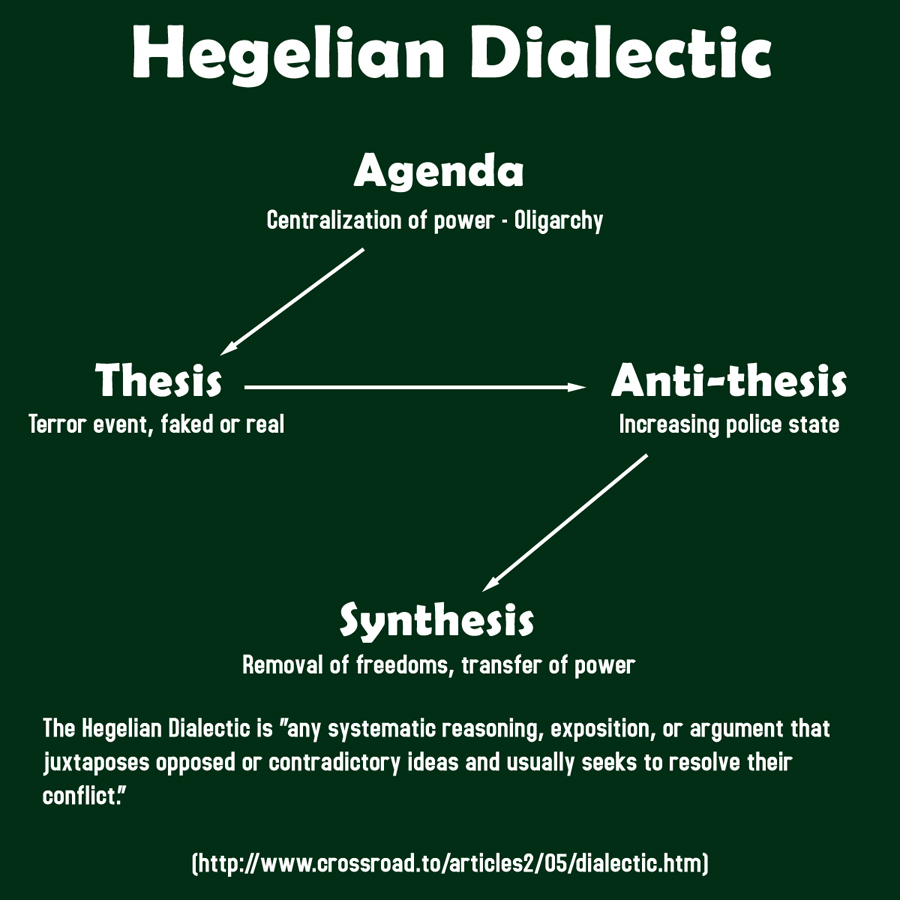

The theory emphasizes interactions allowing for more flexibility to explain how couples maintain a satisfactory, cohesive union. Conversation involves people who must learn to adapt to each other while still maintaining their individuality (Baxter, 2004). They are simply the pushes and pulls that can be found every day in relationships of all types. Partners can’t always know what their significant other desires or needs from them.ĭialectics had been a concept known well to many scholars for many years.

Dialectic examples how to#
However, sometimes couples go through a redundant problem, and it is important to learn how to deal with this problem. When a relationship starts, there is a lot of positive and ample communication between the parties. The changes in a relationship are often dependent on communication. We know that all relationships go through change. Explain different ways of managing dialectical tensions.Dialectics is a method of transcending simple thinking mechanisms, not a oracle of truth. Now, when we get a dialectical narrative, we can see what is left out of it, and hence get a better understanding for the whole. Before Hegel human worldview was precisely dialectical, there was no differentiation. Reality is not dialectical, but we learned it precisely by using dialectics, and then thanks to Hegel transcending this way of organising the world. When we expose the dialectical narrative as such, it no longer can pose as "objective truth" and is brought down to the reality, hence looses power of authority. However understanding that people use dialectical thinking to construct historical narratives, gives a Hegelian scholar ability to trace this logic, and expose it's arbitrary nature. Hegel provides great examples how a historical narrative is constructed by humans, and so it is purely ideological. This was the Hegelian diagnosis of XVIII century thinking - it was a form of critique of his contemporaries. When human "tries to make sense" out of history, he will use dialectical thinking, and try to organise the historical events according to this principles. The problem is there are a lot of "Hegelians" who interpret Hegels writings in a primitive spiritualistic way, like Marx to some extent.ĭialectics is a way of thinking. This is very bluntly put by Hegel himself. Dialectics is a way human mind looks at things, it is a psychological property, not a law of nature. This is a misconception, and not understanding basic concepts of dialectics.

The application to historical events themselves are mediated through this treatment of notions and concepts. While you can apply it to historical and political movements as well, it's generally better to apply Hegel's dialectical movements to concepts or notions. All this is a long way of just showing how the concept of "freedom" can cut both directions depending on how it is employed, as can political movements which are created around this concept. In some ways, Sade is the purest expression of freedom, a freedom which included causing harm and injury to others for one's one personal gratification. Freedom contains its own opposite within itself, oppression, and these contradictions are inherent in the ideology of liberalism.Īdorno and Horkheimer do a good job of identifying this in the Dialectic of Enlightenment when discussing the Marquis De Sade in the "Juliette: Englightenment and Morality" section. Liberalism made much use of this, using it to justify emancipation of certain groups (slaves in the Antebellum South, workers up to a certain point) however most of the current discourse on liberty and freedom has been inverted and instead has become freedom of the owner to oppress his or her employees and to treat them in any manner seen fit. It's more about looking at a concept and illustrating how it contains its own opposite within itself and the contradictions which cause that particular dialectical opposition to be transcended.Ī contemporary example I'm fond of bringing up is the concept of freedom. The whole "thesis-antithesis-syntehsis" schema is way too oversimplified.


 0 kommentar(er)
0 kommentar(er)
